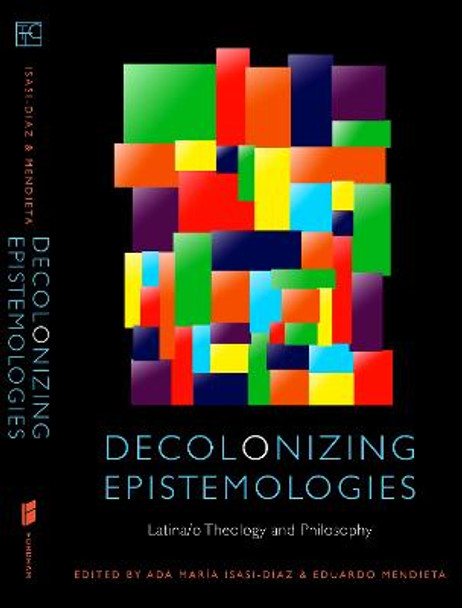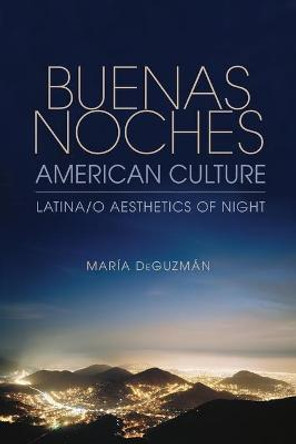Description
Decolonizing Epistemologies builds upon the contributions of liberation and postcolonial theories in both philosophy and theology. Gathering the work of three generations of Latina/o theologians and philosophers
who have taken up the task of transforming their respective disciplines, it seeks to facilitate the emergence of new knowledge by reflecting on the Latina/o reality in the United States as an epistemic locus: a place from which to start as well as the source of what is known and how it is known.
The task of elaborating a liberation and decolonial epistemology emerges from the questions and concerns of Latina/os as a minoritized and marginalized group. Refusing to be rendered invisible by the dominant discourse, the contributors to this volume show the unexpected and original ways in which U.S. Latina/o social and historical loci are generative places for the creation of new matrices of knowledge.
Because the Latina/o reality is intrinsically connected with that of other oppressed groups, the volume articulates a new point of departure for the self-understanding not only of Latina/os but also possibly for other marginalized and oppressed groups, and for all those seeking to engage in the move beyond coloniality
as it is present in this age of globalization.
About the Author
Ada Maria Isasi-Diaz is Professor of Ethics and Theology (Emerita) at the Theological School of Drew University.
Eduardo Mendieta is Professor of Philosophy at Pennsylvania State University. He recently edited and introduced Maps for a Fiesta: A Latina/o Perspective on Knowledge and the Global Crisis (FUP, 2015).
Reviews
"This book is the definitive collection of philosophical and theological voices grounded in the most significant yet overlooked sources in American life-Latina/o doings and sufferings. We owe Ada Maria Isasi-Diaz and Eduardo Mendieta a deep debt for unleashing these profound and powerful essays into the world!" -- -Cornel West "In this collection, a diverse group of Latina/o philosophers and theologians raise a sustained challenge to entrenched conceptions of what counts as knowledge, while offering a wealth of information on a range of Latina/o ideals of social justice and their epistemic repercussions." -- -Ofelia Schutte University of South Florida, Tampa "Finally, a liberating book of essays that demonstrates with verve and nerve that the flourishing of life in our Americas is intimately tied up with a flourishing of new thought. Confronting the long and vicious tradition of lies about Latina/o history and knowledge, these terrific essays present not only the visions of the poor but also the hopes of interracial friendships and thinking, and the unheard voices that are still speaking the truth to us. !Que Viva Decolonizing Epistemologies!" -- -David Carrasco Harvard Divinity School "This text brings together established and up-and-coming figures of Latino/Latina/Latin American philosophy and theology to develop a critique of colonized epistemologies, as well as take the first fundamental steps toward decolonized ways of knowing and thinking. Critical theory, phenomenology, and transphenomenological reflections from hitherto suppressed ways of thinking are represented in this book. The set of essays in this text will be a trailblazer in the development of an epistemology of the philosophy of 'Our America.'" -- -Mario Saenz Le Moyne College "Twenty-first-century 'de-colonization' is a promise of egalitarian modes of ethics, justice, and democracy. This book provides one instantiation of that promise. Here, routes are mapped for reconnecting continents, peoples, cultures, and being. Each chapter experiments with transdisciplinary, postcontinental methods for linking the human, social, and natural sciences. In this book, imperialist, exploitative cultural forms are disturbed and transformed, because now they must pass through the 'ethnic studies turn.'" -- -Chela Sandoval author of Methodology of the Oppressed and Performing the U.S. Latin@ Borderland "The outstanding significance of this book emerges from the fact that the increasing centrality of Latino populations in the United States is transforming the political, economic, and cultural selfperception of the United States. The new face of America is now a reality. Its unfolding will be the most important story of the next fifty years. If you want a glimpse of the future, you must read this book!" -- -Oscar Guardiola-Rivera author of What If Latin America Ruled the World?
Book Information
ISBN 9780823241361
Author Ada Maria Isasi-Diaz
Format Paperback
Page Count 320
Imprint Fordham University Press
Publisher Fordham University Press









